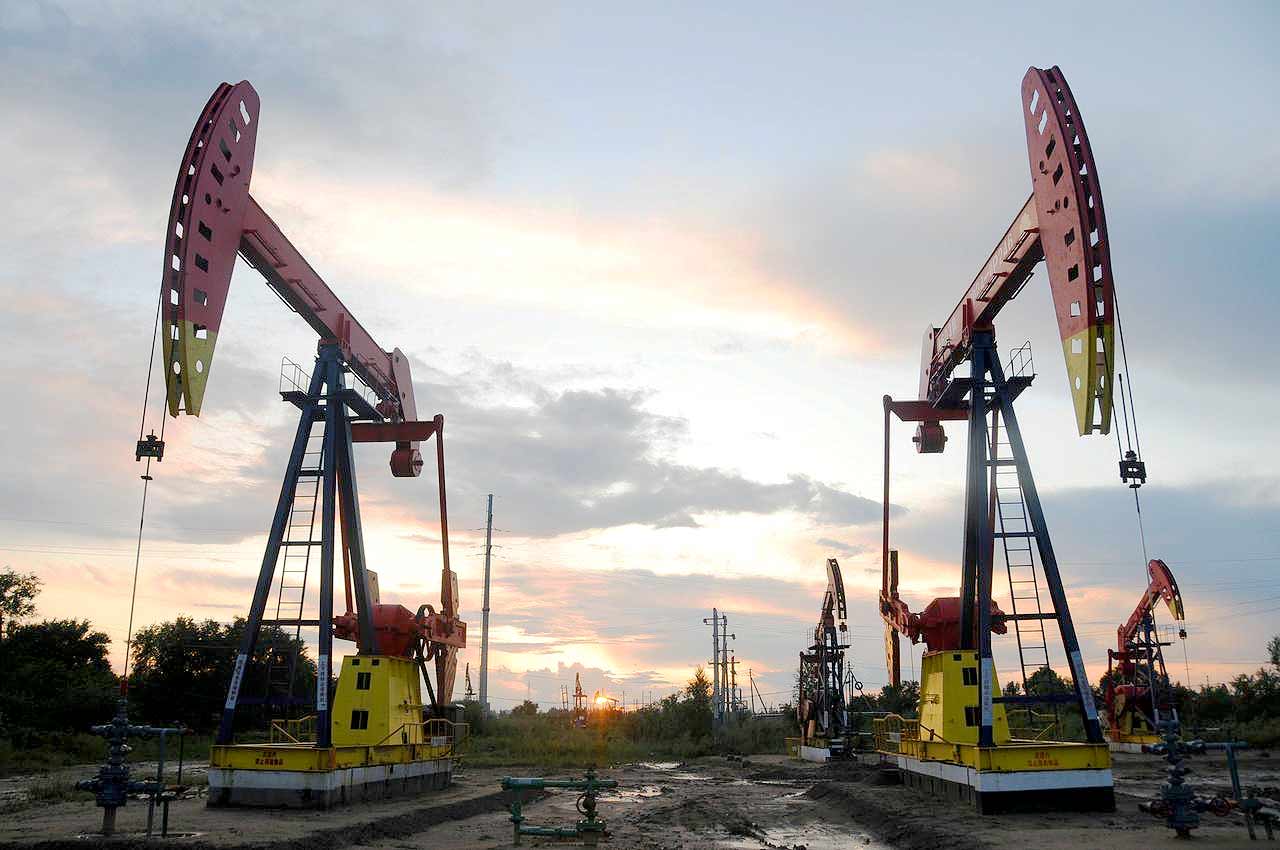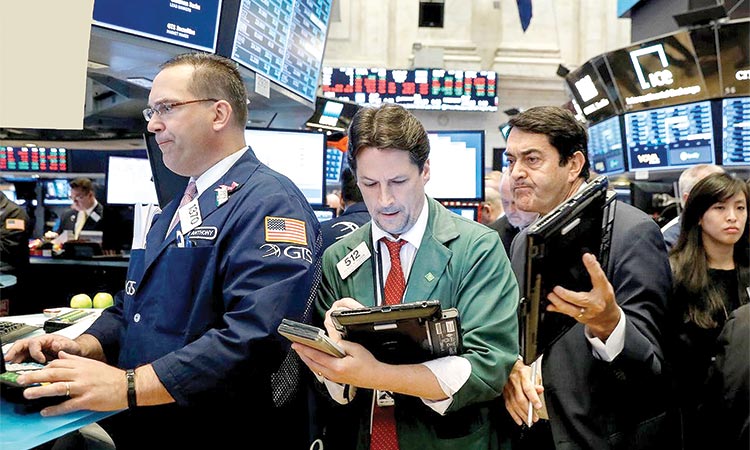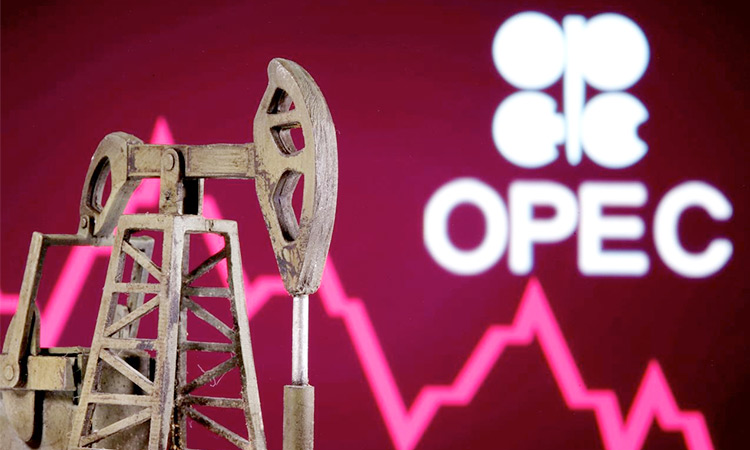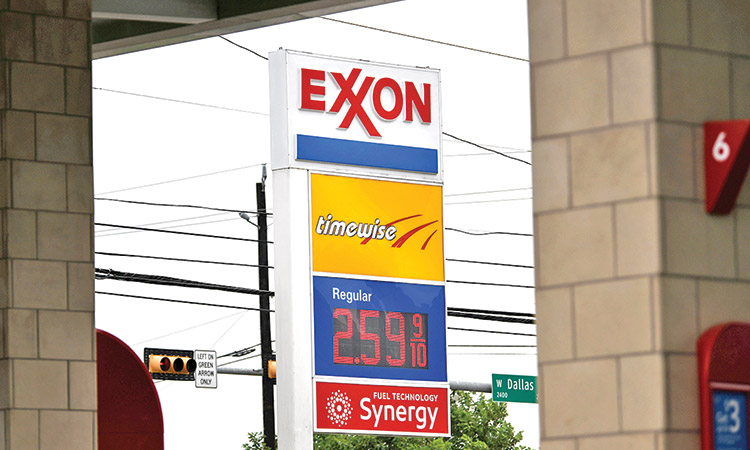Oil prices up 2%, reach highest in nearly a year

Picture used for illustrative purpose. File
Oil prices rose more than 2% on Tuesday, hitting near 12-month highs after major crude producers showed they were reining in output roughly in line with their commitments.
Brent crude was up $1.27, or 2.3%, at $57.62 a barrel by 1320 GMT, its third straight day of gains and the highest levels since late February last year.
US oil gained $1.2, or 2.2%, to $54.75. Both contracts rose more than 2% in the previous session to levels last seen in early March.
New York oil prices surged on the back of upbeat market sentiment and a snowstorm that socked the northeastern United States.
“oil prices powered higher... lifted in part by the positive sentiment returning to equity markets, but mostly because of frigid weather sweeping the United States, pushing up the demand for heating,” said OANDA analyst Jeffrey Halley.
The rebound marks a stunning turnaround for the oil market, which briefly turned negative early last year, as the deadly Covid-19 outbreak shuttered economies and companies worldwide.
Opec crude production rose for a seventh month in January but the increase was smaller than expected, a Reuters survey found.
Also, voluntary cuts of 1 million bpd by Opec’s leader, Saudi Arabia, are set to be implemented from the beginning of February though March.
“With OPEC and its allies (Opec+) endeavouring to keep global oil production below demand, we expect petroleum inventories to keep falling,” UBS said in a note.
The investment bank forecast Brent would reach $63 a barrel by the second half of this year and $65 by the first quarter of 2022. Goldman Sacks said it expected the benchmark to reach $65 a barrel by July.
Russian output increased in January but is in line with the agreement on reducing production, while in Kazakhstan oil volumes fell for the month.
However, energy giant BP flagged a difficult start to 2021 amid declining product demand, noting that January retail volumes were down by around 20% year on year, compared with a decline of 11% in the fourth quarter.
Oil demand is nevertheless expected to recover in 2021, BP said, with global inventories expected to return to their five-year average by the middle of the year.
Helping to support prices, a severe blizzard hitting a large area of the northeastern United States is pushing up demand for heating fuel.
Separately, Exxon Mobil closed the books on a terrible 2020 on Tuesday, reporting losses in the fourth-quarter and for the full year in the wake of lower oil prices amid the Covid-19 crisis.
The big US oil company, which has been criticized over the last year for both its financial performance and its approach to renewable energy investment, suffered a 2020 loss of $22.4 billion, after posting a profit of $14.3 billion in 2019.
The global energy giant unveiled new cost-cutting efforts, a new low-carbon business unit and a new board member which the firm said would position it for the future.
“The past year presented the most challenging market conditions Exxon Mobil has ever experienced,” said Chief Executive Darren Woods, adding that the company responded “decisively” in ways that will situate the company for the long term.
In the fourth quarter, Exxon Mobil suffered a loss of $20.1 billion following huge write-offs. Revenues fell 30.7 percent to $46.5 billion.
The company unveiled plans for additional spending cuts of $3 billion in annual expenses expected by 2023, its latest belt-tightening move amid the industry-wide downturn.
Imperial oil Ltd, one of Canada’s biggest crude producers and refiners, also missed profit estimates for the fourth quarter and warned that a hit to fuel demand from the coronavirus crisis may drag on well into the current year.
Along with the rest of Canada’s oil and gas industry, Imperial endured a torrid 2020 in which the pandemic crushed demand for fuel.
Imperial, majority owned by US oil major Exxon Mobil Corp , said its petroleum product sales came in at 416,000 barrels per day in the fourth quarter, down 7.4% from the prior quarter.
“Market conditions continued to reflect considerable uncertainty throughout 2020 as consumer and business activity has exhibited some degree of recovery, but remained lower when compared with prior periods as a result of the pandemic,” the company said in a statement.
Despite the actions taken by key oil-producing countries to reduce oversupply, “unfavourable economic impact appears increasingly likely to persist to some extent well into 2021,” Imperial added.







